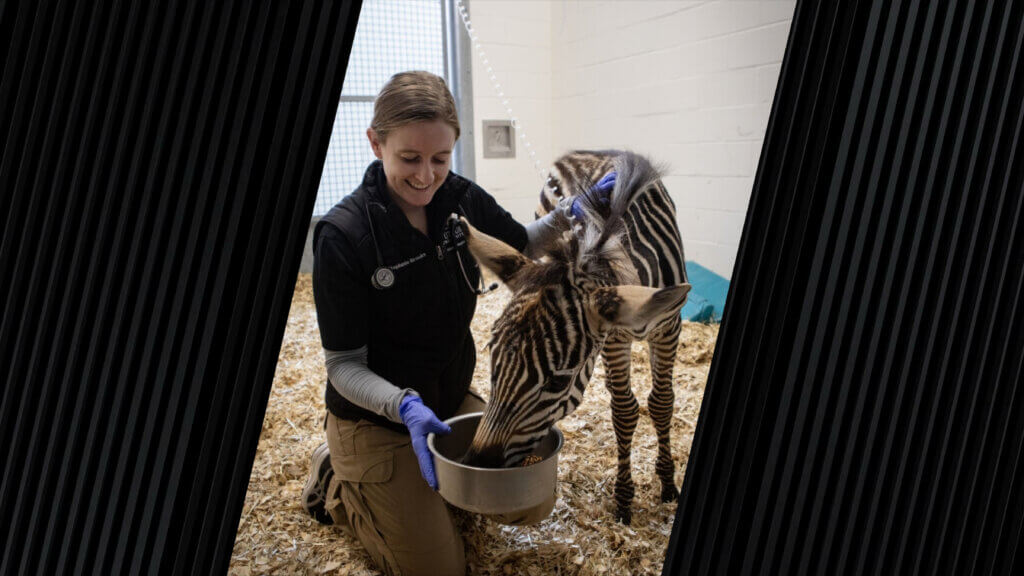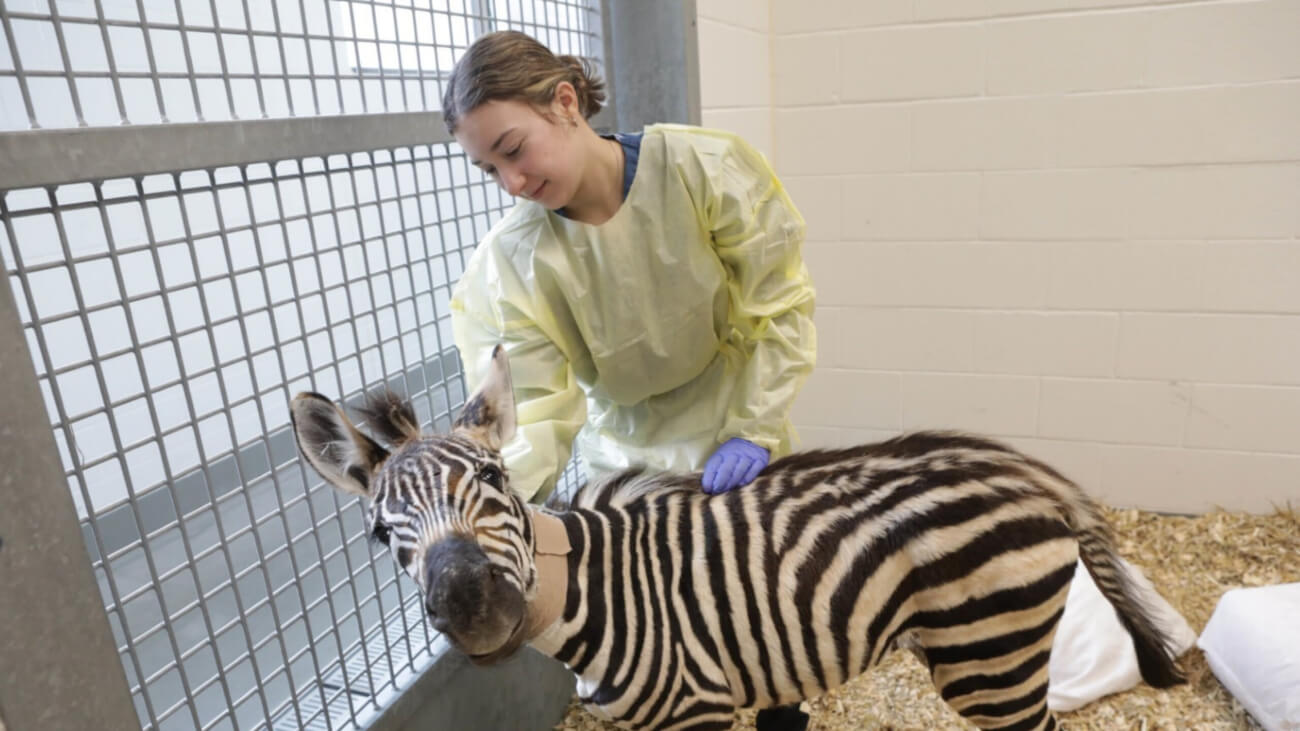It’s not surprising to see a foal receiving emergency care at the Purdue University Equine Hospital during foaling season. The hospital’s team of expert clinicians and veterinary nurses is used to coming to the rescue when foals need special help to survive. But it was a surprise to see a foal named Marty arrive at the hospital’s Intensive Care Unit in February, because Marty is a zebra, and the hospital is in Indiana.
This story dates back to the morning of February 10, when Natalie Overton of Terre Haute headed out for morning feedings. She never expected to find Marty, her two-month-old zebra, lifeless. In what Overton has since described as, “nothing short of a miracle,” Dr. Jurica Tršan, Large Animal Internal Medicine and Emergency and Critical Care clinician and his team rehabilitated Marty, saving his life, and aiding in his miraculous recovery.
Marty was admitted to the Intensive Care Unit lying down and unable to get up due to his comatose and unresponsive state. He also exhibited extremely low heart and respiratory rates, along with a lack of vital reflexes. “These concerning signs pointed to a severe underlying condition, which was confirmed by our diagnostic workup,” Dr. Tršan said. “We identified signs of sepsis and bronchopneumonia, which required immediate intervention.”
Marty received cardiopulmonary resuscitation and assisted ventilation upon his admission, and was placed under 24/7 supervision by Large Animal Internal Medicine (LAIM) faculty, residents, veterinary technicians, assistants, and students. “Marty’s rehabilitation involved a highly intensive and comprehensive approach,” Dr. Tršan explained. “We performed daily monitoring through ultrasounds of his thorax and abdomen, which allowed us to track the progression of his pneumonia and assess gastrointestinal and urinary systems, which was essential for evaluating both his immediate and long-term recovery.”
Dr. Tršan and his team provided Marty with continuous, high-level care that included a carefully tailored fluid regimen, antibiotics for treating his sepsis and pneumonia, and both intravenous and oral nutritional support. Physical therapy was an additional crucial component of his rehabilitation, helping to promote circulation and maintain his muscle tone.

On his fourth day at the Equine Hospital, Marty had regained the majority of his reflexes, was able to stand with assistance, and could nurse on his own. “This response was truly impressive and exceeded our expectations considering his critical condition at the time of admission,” Dr. Tršan said. Though his recovery was slowed from some expected comorbidities, Marty’s condition continued to see gradual improvement daily.
Once Marty was able to maintain his vital functions independently, he was ready to be discharged, and he went home February 25. “By that time, he had made significant strides in his recovery, demonstrating the resilience and progress we had hoped for,” Dr. Tršan said. “His discharge marked the successful conclusion of an arduous but rewarding rehabilitation process.”
Dr. Tršan credits both Marty’s resilience and the devotion of the Large Animal Internal Medicine team as being key to this monumental recovery. “This was a challenging case but seeing Marty progress from such a critical state to being able to go home was incredibly rewarding for all involved.”
Dr. Tršan adds that the story of Marty the zebra also serves as a wonderful testament of the Purdue University Equine Hospital’s outstanding capabilities to provide compassionate, life-sustaining aid to neonates and foals, whether horses, or even, a zebra.

